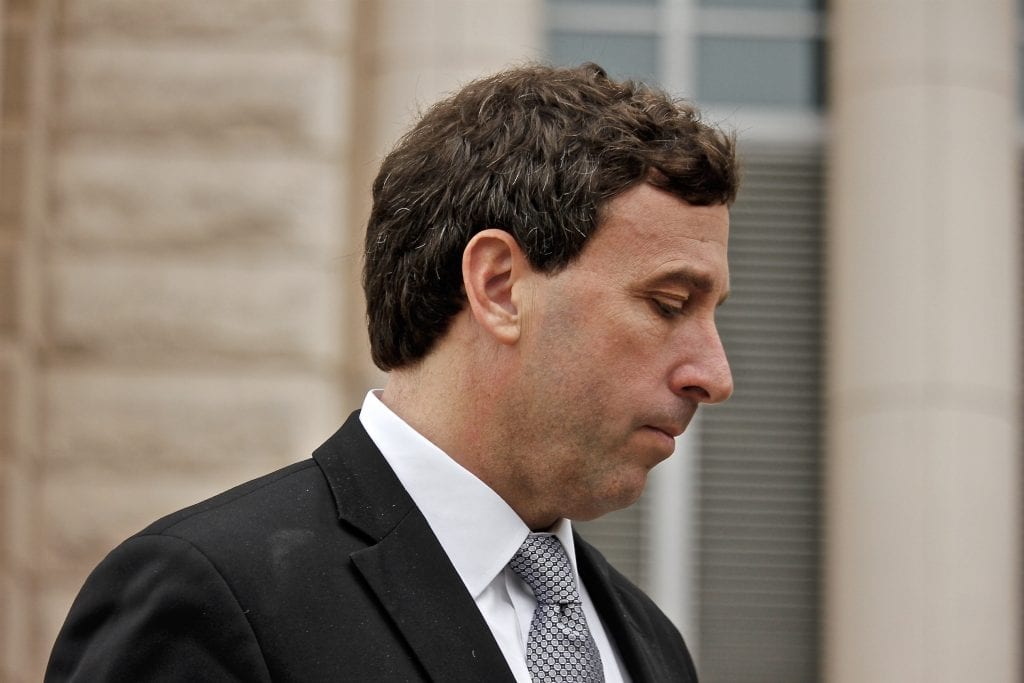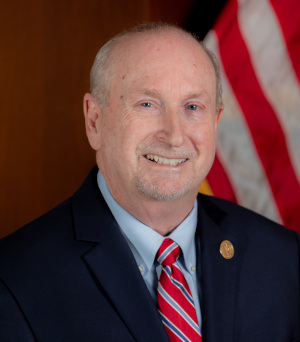Former St. Louis County Executive Steve Stenger is out of prison and back in St. Louis.
Stenger, a Democrat, served as South County’s County Council member until he was elected county executive, taking office in 2015 until his resignation in the face of federal corruption charges in April 2019.
After Stenger pleaded guilty to four felonies five days after he was indicted, U.S. District Judge Catherine D. Perry sentenced him in August 2019 to four years in prison.
Stenger pleaded guilty to a sweeping pay-to-play scheme in county government involving exchanging contracts and bids for campaign donations from Stenger’s donors. Stenger agreed as part of the plea deal that everything in a 40-page federal indictment was true, including threats to fire county employees if they didn’t go along with his scheme and constant text messages between himself and John Rallo, a business owner who wanted county contracts and land in exchange for donations. Profanity-laden rants were caught on a wire apparently worn by one of Stenger’s top deputies, former 6th District Councilman Jeff Wagener.
The former county executive’s right-hand man, Chief of Staff Bill Miller, also pleaded guilty and was sentenced to prison time, as was Rallo. The CEO of the St. Louis Economic Development Partnership, Sheila Sweeney, pleaded guilty but was given probation since she apparently cooperated with prosecutors.
Stenger, 49, had been listed as residing at the federal prison in Yankton, South Dakota, until Monday, when the federal Bureau of Prisons’ inmate locator began listing him as residing in Residential Re-Entry Management St. Louis, which oversees local federal halfway houses where inmates can serve out the last months or year of their sentence.
The inmate locator also no longer lists a release date for Stenger; some news outlets have reported from confidential sources that he is under house arrest at his $1.43 million house on North Forsyth Boulevard in Clayton, but that was not yet independently confirmed by The Call. Stenger, an attorney who was disbarred after the corruption scandal, moved from Affton after he was elected county executive.
Requests to the BOP for information have not yet been answered.
Federal prison sentences typically did not allow time off for good behavior before the First Steps law signed into law by President Donald Trump in 2018, which seeks to minimize time in prison for nonviolent crimes.
It originally appeared that Stenger would have to serve most of his sentence at Yankton Federal Prison in South Dakota, his preferred choice of prison. But as soon as he surrendered to the prison in Yankton, South Dakota, in September 2019, his time on the inmate locator was halved from four years to two years.
The COVID-19 pandemic also led to federal prison officials releasing inmates early if they were serving time for nonviolent or white-collar crimes, or based on age. Both Miller and Rallo, who were sentenced to less time, were already released during the pandemic due to health issues.
The disgraced county executive originally asked through his lawyer, Scott Rosenblum, to be admitted to the Bureau of Prisons’ Residential Drug Abuse Program, or RDAP, but Perry said that he didn’t qualify because there was no evidence of drug abuse, only potential alcohol abuse.
But after Stenger reported to prison, Rosenblum said that he had been accepted into the drug-abuse program, which could shave time off his sentence.
Even with the treatment program, however, Stenger was originally slated to be released in December 2021, and that date had never changed until Monday.
A BOP spokesperson at the time that Stenger went into prison said they will not comment on specific inmates, but said Stenger’s time was properly calculated and that under a new law, inmates can get 54 days a year off for good behavior. At that time, the spokesperson said that Stenger would also spend six months in a halfway house.
















